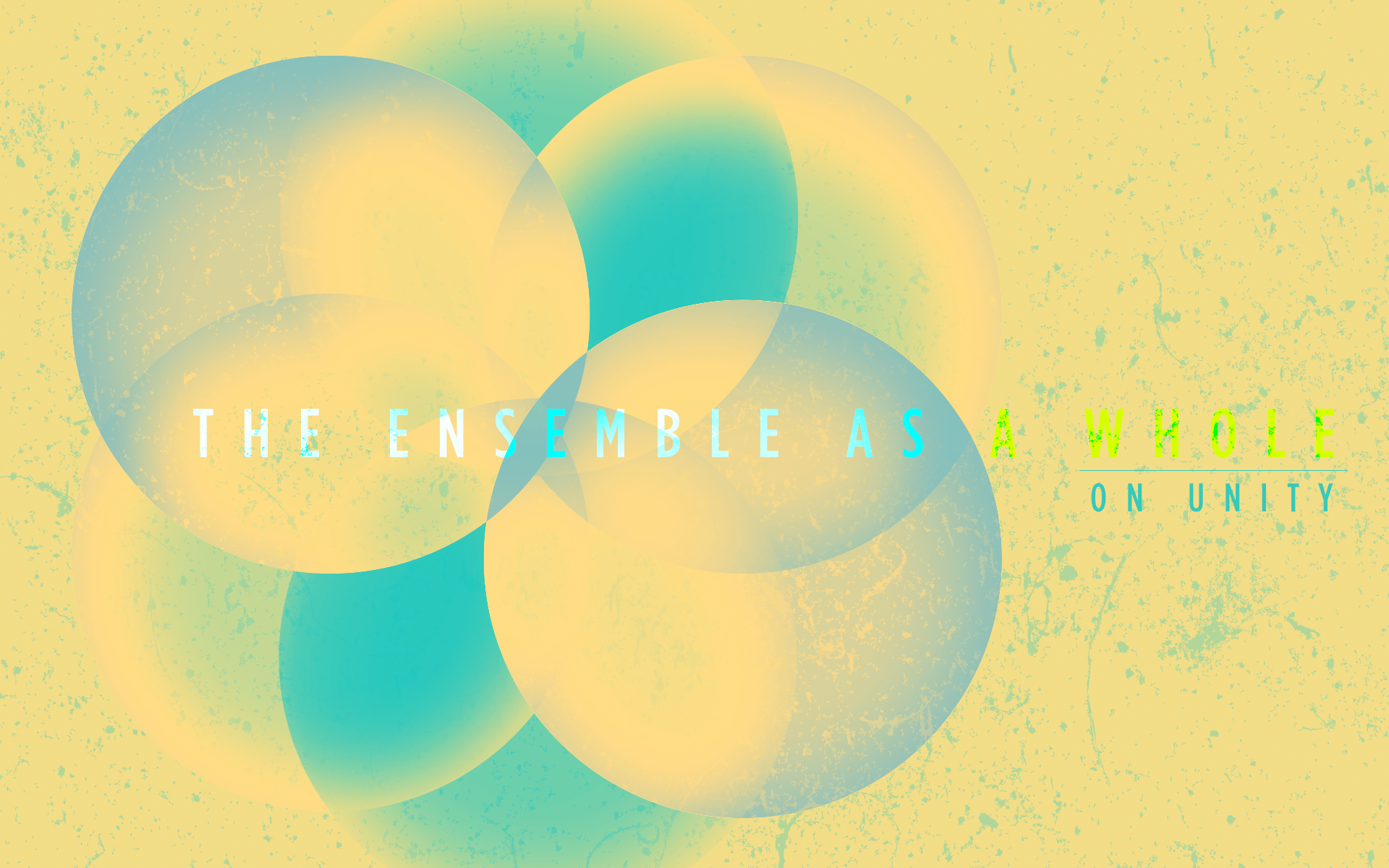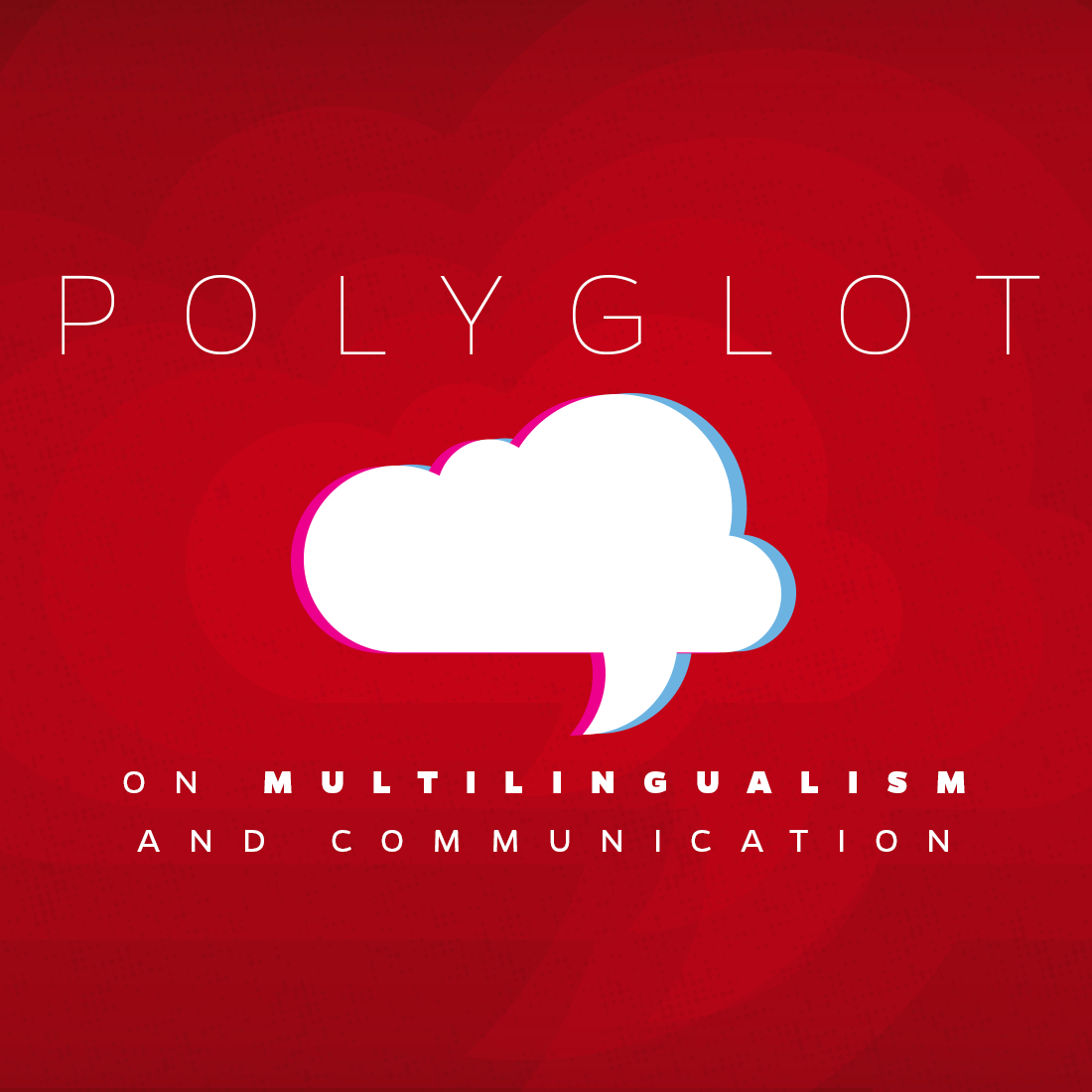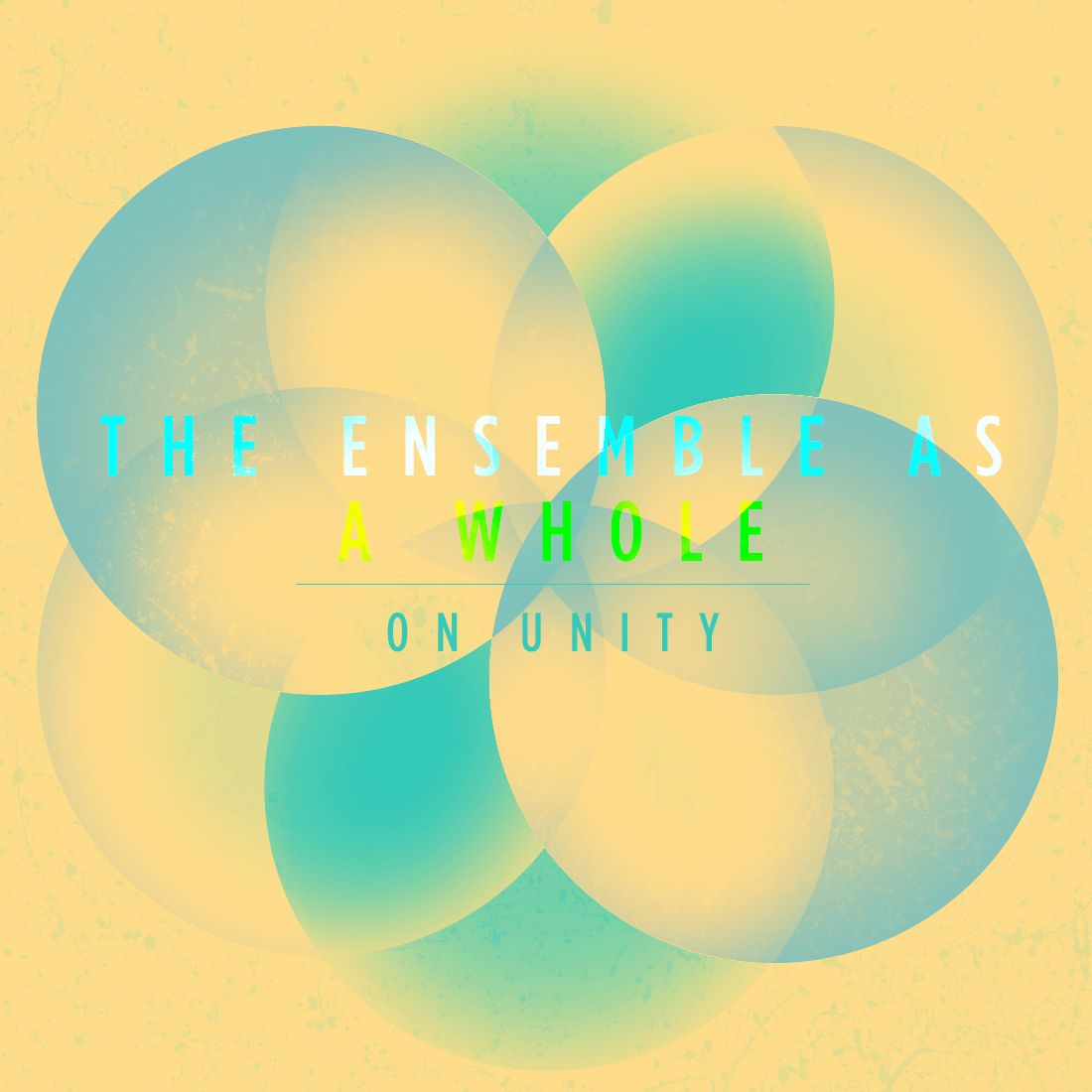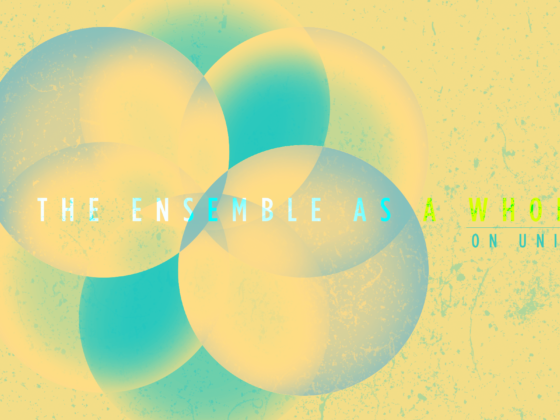NATALIE GALLAGHER
Imagine being on the subway, minding your own business, and hearing someone say this:
“How bona to vada your eek!”

Dr. Paul Baker | Source: Lancaster University
What would you think? Would you make particular assumptions about the speaker? Rather than the edge of nonsense, this is actually Polari, a language spoken by men with same-sex attraction in Britain between 1930 and 1970. Translated, that phrase means, “How nice to see your face!” (You can listen to a dramatized example here). Polari is an example of an anti-language: a means of communication used by a subculture (or anti-society) that builds off of a dominant language, primarily by replacing vocabulary. Often, the new vocabulary of the anti-language is concentrated in areas of particular importance for that subculture, or areas in which the dominant culture is perceived to be oppressive — for instance, Polari has a plurality of words associated with gender and sexuality. Coined and defined by linguist Michael Halliday in the 1970s, anti-language is a category that encompasses forms as varied as Cockney, rhyming slang, CB slang, the Grypsera of Polish prisons, and thieves’ Cant. The list is admittedly incomplete, partly due to the nature of anti-languages; as perpetually evolving and secretive phenomena, contemporary instances are unlikely to be recognized as such immediately. The anti-language framework was notably applied to Polari by Dr. Paul Baker, whose book Polari – The Lost Language of Gay Men provided a lot of source material for this article.
Anti-languages do not spring from the ground fully formed, but develop in response to the need for coded communication within a community.

The ubiquity of linguistic communication is what makes its subversion so interesting. We are surrounded by language — spoken, written, endlessly evolving — even before birth, and it is foundational to human society. Anti-languages do not spring from the ground fully formed, but develop in response to the need for coded communication within a community. They are close enough to their parent language that they blend in, but distinct enough to identify a subgroup. Speaking entirely in an anti-language can be a tool to publicly mark oneself as different from the norm; dropping a word into casual conversation can be a way to check on the sympathies of one’s interlocutor. This perpetual choice on the part of the speaker is what makes anti-languages performative — Polari was not a static characteristic of those who spoke it, but rather specifically served to unify the “ingroup” and exclude the “outgroup.” As an analogue to Judith Butler’s influential descriptions of gender as a performance, Polari exemplifies a linguistic performance of sexuality.
Why Did They Need an Anti-Language?
Polari is an example of an anti-language: a means of communication used by a subculture (or anti-society) that builds off of a dominant language, primarily by replacing vocabulary.
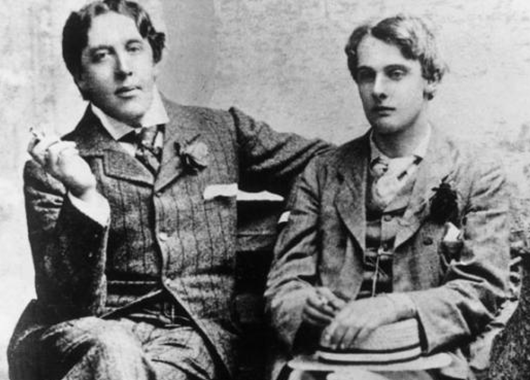
Oscar Wilde and his lover, Lord Alfred Douglas | Source: Wikimedia Commons
A brief dive into history is relevant in understanding the necessity of Polari. Homosexuality among men in Britain was illegal in various forms for a very long time (Buggery Act of 1533, Offences Against the Person Acts of 1828 and 1861), but the 1885 “Labouchere” Amendment to the Criminal Law Amendment Act declared all instances of homosexual behavior punishable by two years of hard labor. This expanded the reach of the law to behavior in private between consenting men, including absolutely any behavior that could be considered homosexual — earning it the nickname of the “Blackmail Charter.” This legislature was the basis of Oscar Wilde’s conviction for gross indecency ten years later. Notably, no mention was made of same-sex attraction in women. The flippant (and, apparently, mythical) explanation has long been that Queen Victoria, who had to sign it into law, simply did not believe women would do such things.
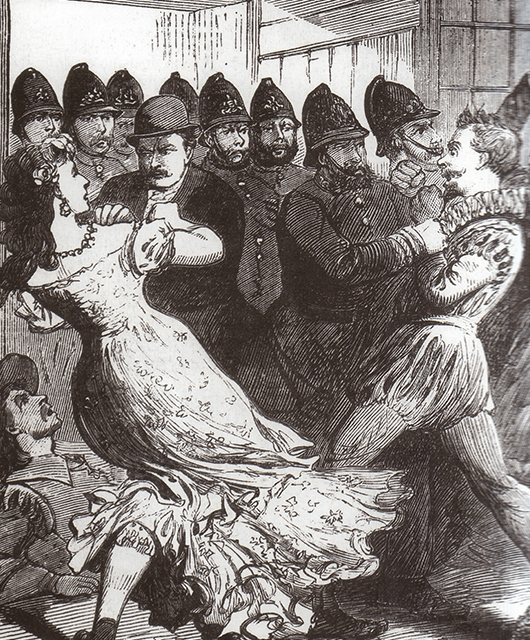
Police raid of a drag ball in Hulme, Manchester, from The Illustrated Police News | Source: Wikimedia Commons
It is in this context, of broad criminalization of behavior that could be construed as suggesting homosexual interest, that Polari came to prominence within communities of men with same-sex attraction. At the time, there was not a “gay community” in Britain as we might think of it today. Concepts like gay pride and “coming out of the closet” were not a part of life at that time. The core of the Polari-speaking community was men who had sexual or romantic relationships with men. However, it also included women who had sexual or romantic relationships with women, many heterosexual friends of individuals with same-sex attraction, theatre workers, sex workers, and other overlapping groups. The coexistence of communities of people with same-sex attraction and laws prosecuting them motivated the development of Polari, especially to specifically discuss just those criminalized behaviors.
Origins and Linguistic Features
Polari, like many anti-languages, is characterized by the use of metaphor in expression at all levels.
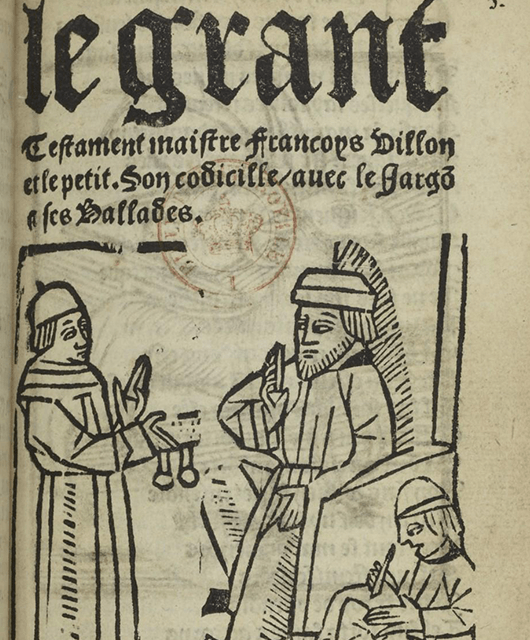
Le Grant Testament Maistre Françoys Villon et le Petit, Son Codicille avec leJargon et ses Ballades — one of the earliest examples of thieves’ Cant | Source: Wikimedia Commons
Polari has a bevy of antecedents, some common languages and some other anti-languages. Notably, its antecedents have also tended to be associated with social subgroups: the Cant of criminals in 16th-18th-century Europe, the language of Molly Houses, the Lingua Franca of port cities and sailors along the Mediterranean, Cockney rhyming slang, Romani, trade slang of both theatremakers and prostitutes, Yiddish, slang of the American Air Force, and drug culture. Because it was not written down at the time of use, there is no truly “standard” spelling or definition for most of the lexicon. Indeed, research on Polari (much of it by Baker), has been retrospective — that is, the work has occurred long after the language fell into disuse, and therefore does not have access to the language as it was spoken by its primary language community. Nevertheless, there is a lexicon of about 400 words that have been classed as Polari, of which several are included at the end of this article.
Of the total set, 70% are nouns, referring to either types of people, body parts, clothing, or terms of endearment. A strong feminizing metaphor runs through the nouns for types of people (21% of the lexicon), as well as a tendency for binary categorization of people (i.e. young vs. old, butch vs. camp, beautiful vs. ugly). Particularly interesting is the feminizing set of nouns to refer to police (Betty Bracelets, Hilda Handcuffs), who at the time were enforcers of homophobic laws. Verbs (13% of the total lexicon) cluster around sexual acts, walking, eating, and communicating. Adjectives, which comprise about 15% of the lexicon, tend to be indicators of the speaker’s opinion — i.e. indicate approval or disapproval, rather than simply description.
Polari, like many anti-languages, is characterized by the use of metaphor in expression at all levels. To dig further into that aspect of the language, I interviewed Francisco Maravilla, a graduate student at Northwestern University who studies psycholinguistics. Using the Career of Metaphor framework, he described a general process by which single-instance nominal metaphors become high-level conceptual ones.
First, the comparison between things starts out as a simple simile “X is like Y.” With sufficient use, people come to remember the abstract rather than concrete version of the terms, and this is what enables the shift from simile to commonly-accepted metaphor. Maravilla describes this final shift, when the abstract meaning becomes the primary meaning of the word:
“It can even lose recognition that it’s a metaphor at all. Eventually, it could be the case that we don’t even talk about the literal anymore. This happens with some terms, like blockbuster. When “blockbuster” was first coined, if you look in the OED, it’s a bomb. It’s a bomb that’s large enough to destroy a city block. That [came to mean] some sort of thing that’s a big deal, that blows up. That movie’s a blockbuster, it’ll blow you away. This abstract sense [has become used so commonly] and we’ve lost the original meaning.”
– Francisco Maravilla
Within this framework, understanding of commonly used metaphors should be available to all language speakers — especially interesting in the case of Polari, where induction into gay male urban culture of Britain between 1920 and 1970 often meant picking up the language. However, this induction was not uniform: only about 20 of the words are considered “core,” known to all Polari speakers. The others would have been distributed in smaller communities of language speakers, allowing for distinctions not only between Polari speakers and non-Polari speakers, but social proximity within the community itself.
The Death of a Language
[One reason] that Polari declined was its emergence into the mainstream.
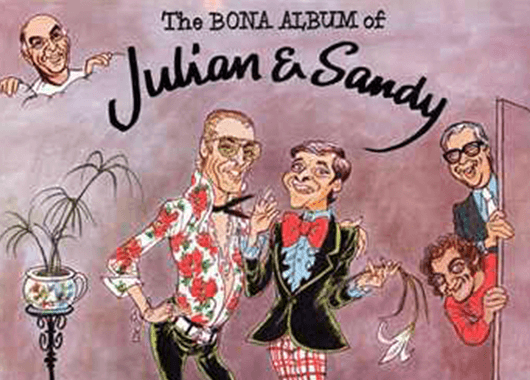
The Bona World of Julian and Sandy, released in 1976 | Source: Wikimedia Commons
The decline of Polari had several contributors — notably, the U.K. government’s 1967 Sexual Offences Act, which decriminalized homosexual acts in private between two men over the age of 21. Despite the age of consent being higher than for heterosexual acts, this was a major step forward in LGBTQ rights, and substantially reduced the need for secretive communication. Another, somewhat paradoxical, reason that Polari declined was its emergence into the mainstream — in particular via a radio sketch on the BBC program Round the Horne featuring two camp characters called Julian and Sandy. This sketch evaded BBC censorship with its use of Polari for innuendo and jokes about homosexuality. It was part of popular culture, and became a means by which core Polari lexicon entered public discourse — thereby making Polari less useful as coded communication. Within the LGBTQ community, backlash also started to rise against the feminized version of homosexuality that is a core theme of Polari. New gay identities were rising to prominence — ones centered around strong masculinity, and less with the “camp” and “queen” identities of Polari. As this happened, Polari for a new LGBTQ generation came to represent regressive, stereotyped, or closeted expressions of homosexuality. For a community that no longer needed to hide, expressions of unity no longer needed to be secretive, and Polari diminished.
Rebel Without a Cause: The Resurgence of Polari
The search for positive LGBTQ historical artifacts has grown, and Polari fits the bill.
Convenient as it would be to say that Polari died completely when it was not longer useful, it actually has an interesting encore starting in the 1990s. Alongside increasing LGBTQ acceptance and technological advances (for instance, the Internet), this seems primarily motivated by a desire for positive historical unity within the LGBTQ community. With so much LGBTQ history relying on reports by community outsiders — reports often hostile to their subjects — the search for positive LGBTQ historical artifacts has grown, and Polari fits the bill. This is especially valuable for the LGBTQ community because it is not otherwise inherited. Collectivism, and collective history, occur only by concerted effort of individuals rather than by groups that exist besides the LGBTQ identity itself. For comparison, consider ethnic communities — the collective history of an ethnicity is meaningfully interrelated with the collective history of families and other pre-established social structures in a way that is not true for LGBTQ identities.
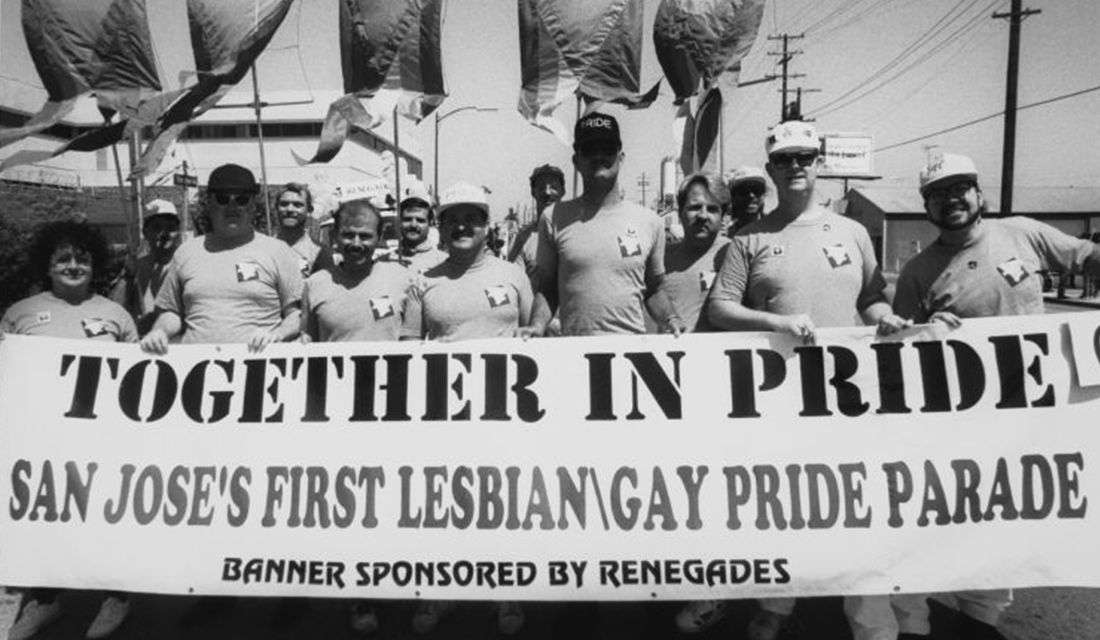
San Jose’s First Lesbian-Gay Pride Parade | Source: Various/Wikimedia Commons (CC-BY-SA-4.0)
Today, Polari is used by the LGBTQ church The Sisters of Perpetual Indulgence, is the name of an LGBTQ online magazine, and there’s even a Polari app, which teaches people the vocabulary as well as collecting previously unreported words of Polari. As the LGBTQ community continues to evolve, it remains to be seen whether Polari’s resurgence will once again supply unity to a much more dispersed community.
An Abridged Polari Lexicon
(Bolded words are core terms; the rest are fringe terms):
- And No Flies (vocative): “Honestly! I’m telling the truth!” Alternatively, “and no mogue?”
- Bencove (noun): friend
- Betty Bracelets (noun): police
- Bevvy (noun): (1) drink (2) public house
- Bitch: (1, noun) feminine man (2, verb) to complain
- Blow (verb): to give oral sex
- Bona: (1, adjective) good, (2,adverb) well
- Camp (adjective): flamboyantly effeminate, original, amusing, homosexual, affected. Originally used at the beginning of the 20th-century. Possibly derived from the acronym KAMP: “known as male prostitute.”
- Cold Calling (verb): walking into a pub looking for company
- Color of his eyes (noun): penis size
- Cottage (noun): public lavatory or urinal
‘Cottage’ first started being used to mean toilet at the beginning of the 20th-century. In British parks, the ‘facilities’ provided tended to look like miniature country cottages, with a sloping roof and windows, and gay men started to refer to them as such. Just as camping and cruising can be used as double entendres, so could phrases that involved “cottaging.”
- Cruise (verb): look for sex
- Dear/Dearie (noun): used as a friendly yet rather patronizing personal term of address. To be called “dear” may imply that someone is unable to remember your name.
- Dish: (1, noun) anus (2, noun) attractive man
- Dolly: (1, noun) a smart or attractive woman (2, adjective) attractive (3, noun) penis
- Don’t be strange (imperative): don’t hold back
- Drag: (1, noun) any type of clothing (2, noun) women’s clothing when used by a man, or vice versa
- Fantabulosa (adjective): wonderful
- Hilda Handcuffs (noun): police
- Lally/Lallie/Lall/Lyle (noun): leg
- Manky (adjective): bad, poor, tasteless
- Mother (pronoun): me/myself. Often used by older gay men to friends when they’re talking about themselves, especially in the phrase “your mother” (“pull up a chair and tell your mother all about it”).
- Naff (adjective): (1) tasteless (2) heterosexual
‘Naff’ is a word that has found its way into late-20th-century English slang and is used among heterosexuals and homosexuals alike.
- Nanti/Nantee/Nanty/Nunty/Nuntee (negator): can be used to mean ‘no,’ ‘none,’ ‘don’t,’ or ‘nothing.’
- Ogle/Ogale: (1, verb) to look longingly at a man (2, noun) eyes. From 18th-century Cant.
- Omi/Omee/Omy/Omme/Omer/Homee/Homi (noun): man
- Omee-Palone/Homee-palone (noun): homosexual man. The word is a combination of “omee” (man) and “palone” (woman)
- Palone/Polone/Pollone/Paloney/Palogne (noun): woman, girl
- Palone-Omee (noun): lesbian woman
- Polari/Polare/Palare/Parlaree: (1, noun) gay language (2, verb) to talk
- Queen (noun): a slang word used by many Polari speakers to refer to themselves. As a slang word, it has a history of being used about women as much as, or more than, about men.
- Riah (noun): hair
- Seafood (noun): a homosexually available sailor
- Send Up (verb): to make fun of
- Sister (noun): a close friend; also likely to have been an occasional sexual partner
- TBH (adjective): (1) sexually available, (2) gay. Acronym for ‘to be had.’ Also used in the negation as NTBH.
- The Dilly (noun): a shortened version of Piccadilly Circus, part of central London that was a popular hangout and pick-up place for Polari-speaking male prostitutes.
- Titivate (verb): to make oneself look pretty
- Trade (noun): male sex
‘Trade,’ which is broadly a euphemism for a casual sexual partner, dates back to the Molly words of the 18th-century, and has taken on several shades of meaning.
- Treash (noun): term of endearment. A truncation of ‘treasure’
- Turn my oyster up (verb): make me smile
- Vada/Varda/Vardo/Vardy/Varder (verb): to look
- Versatile (adjective): bisexual
- Vogue: (1, noun) cigarette (2, verb) to light a cigarette

